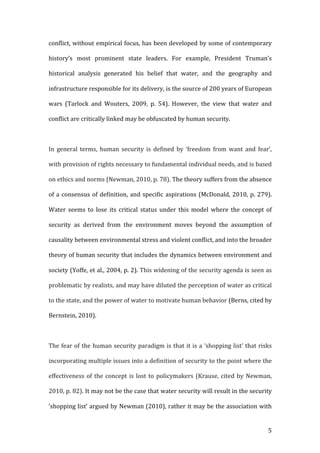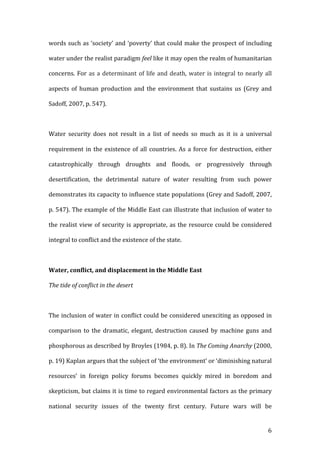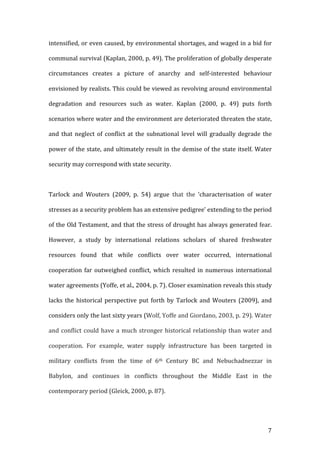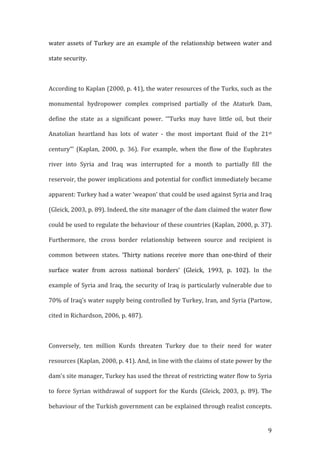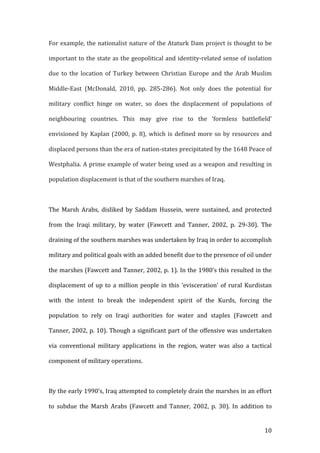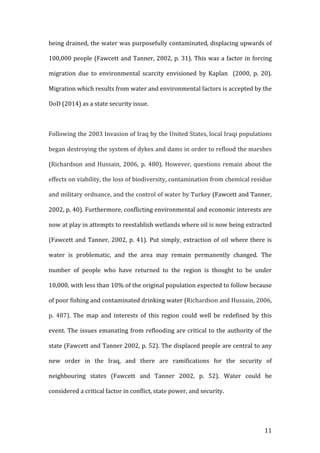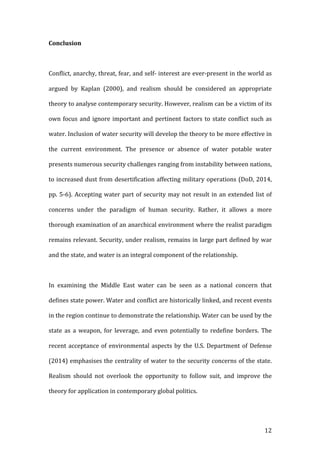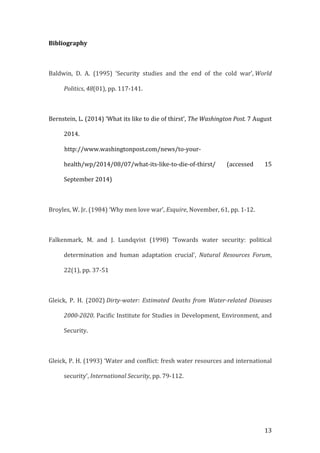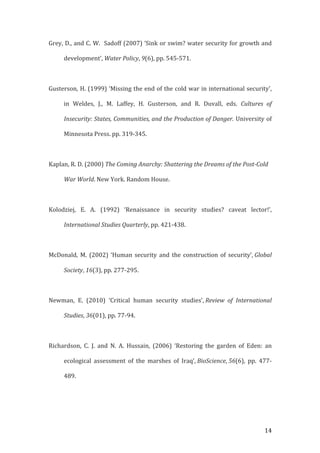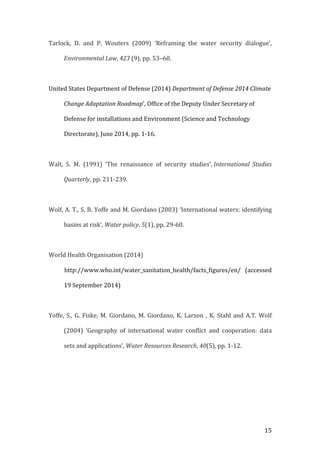This document discusses whether water should be considered a security issue according to realist theory in international relations. It argues that water meets the criteria of a security issue given its vital importance to human life and the potential for conflicts over scarce water resources. While realism traditionally focused narrowly on military threats to states, the failure of realists to predict major global changes like the end of the Cold War suggests the theory needs to be more flexible and adaptive to contemporary security challenges like environmental stress and resource scarcity. Including water as a security issue could make realism more relevant and effective in analyzing current global politics.
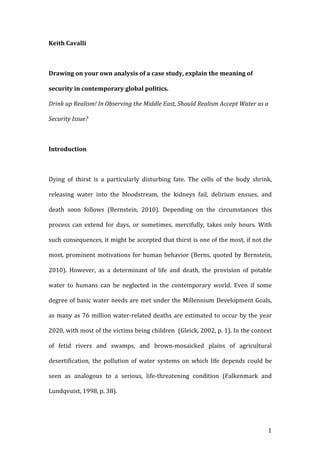
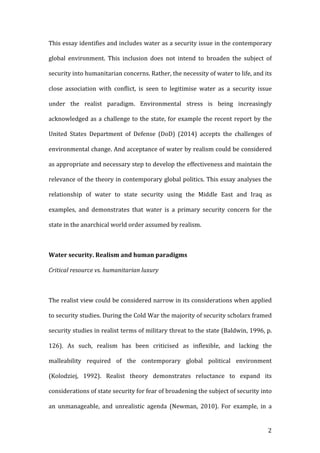
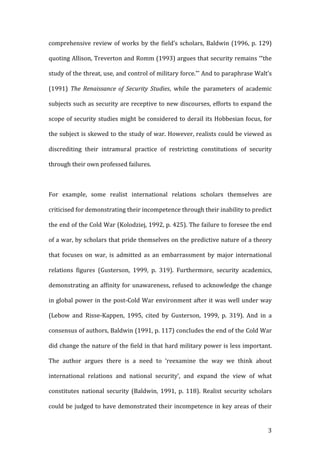
![4
security
studies.
Water,
as
critical
to
life,
should
not
be
regarded
by
realists
as
opening
the
subject
of
security
into
an
endless
list
of
humanitarian
considerations.
Rather,
acceptance
of
water
by
realism
might
be
considered
a
necessity
in
order
to
demonstrate
the
ability
of
scholars
to
adapt
their
practice
and
remain
effective
in
their
analyses.
Adding
water
to
realist
security
studies
is
concomitant
with
the
increasingly
accepted
view
that
climate
change
is
a
part
of
the
contemporary
environment,
and
maintains
realism’s
state
focus.
Climate
change
has
been
a
catalyst
for
including
the
environmental
health
of
a
nation
to
the
considerations
of
national
security,
not
necessarily
the
individual
(Tarlock
and
Wouters,
2000,
p.
55).
More
recently,
the
DoD
(2014,
p.
11)
states
in
its
strategic
report,
‘“the
[DoD]
must
consider
the
effects
of
climate
change…and
how
these
effects
could
impact
our
national
security”’.
And
realist
theory
is
well
positioned
to
analyse
water
as
a
security
issue
due
to
the
fear
and
potential
for
conflict
incited
by
water
related
issues.
Gleick
(1993,
p.
87)
argues
that
even
the
sensitivity
amongst
nations
concerning
availability
of
fresh,
potable
water
has
the
potential
to
be
used
as
a
political
instrument
to
assert
power
and
may
result
in
violence
and
military
conflict.
Problematic
to
this
argument
is
that
none
of
the
four
indicators
Gleick
(1993)
uses
to
analyse
the
nation
with
respect
to
water,
security,
and
violence
are
empirically
derived
or
tested
(Yoffe,
et
al.,
2004,
p.
2).
Nevertheless,
national
leaders
have
previously
acknowledged
the
empirical
shortcomings
of
the
indicators
used
by
Gleick
(1993).
Furthermore,
the
relationship
of
water
to](https://image.slidesharecdn.com/watersecurity-150203200306-conversion-gate02/85/Water-security-4-320.jpg)
